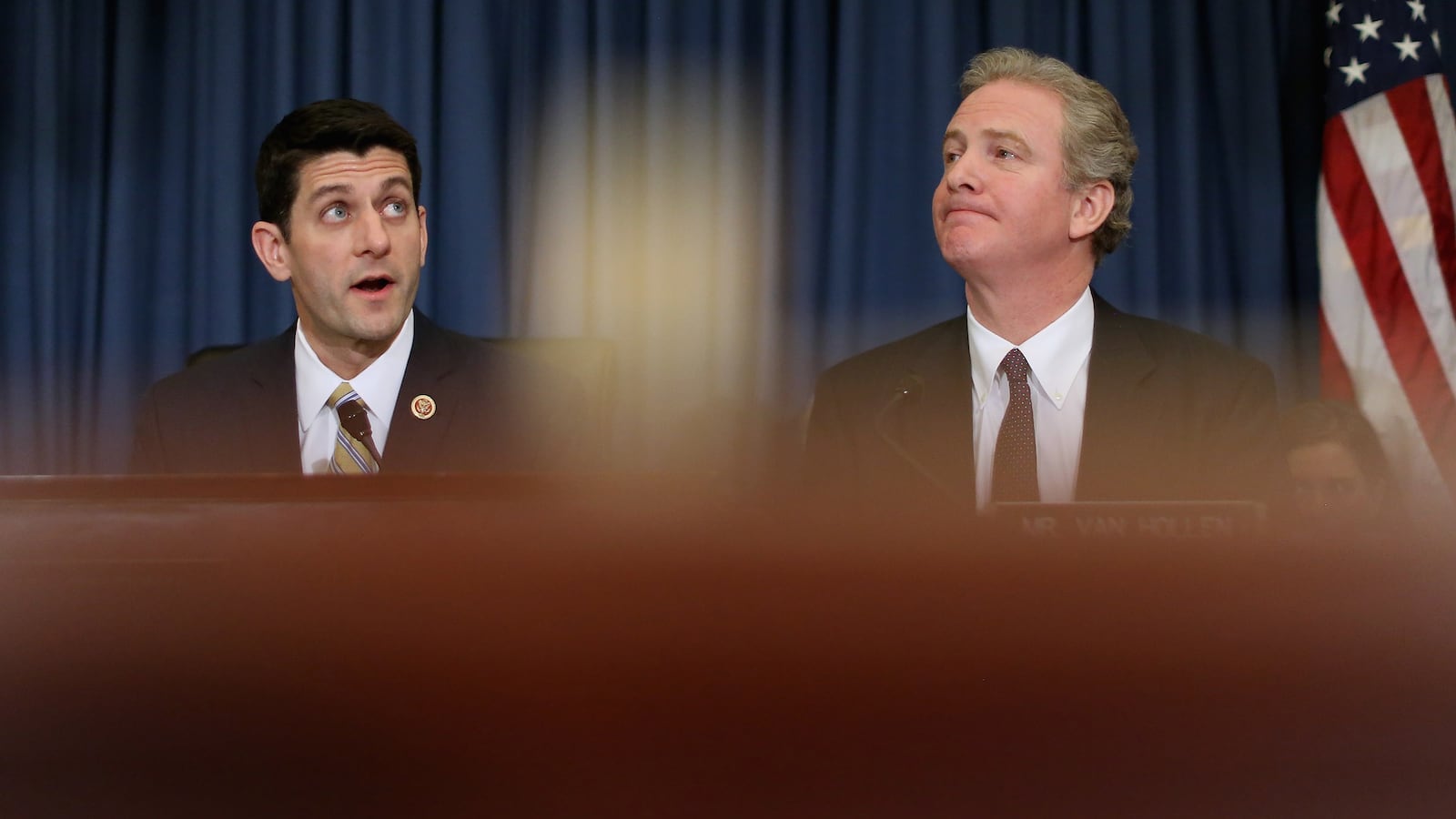
Yesterday was embarrassing for Washington’s pundit class.
It all began with a Congressional Budget Office report on the impact of the Affordable Care Act on the labor force. The CBO found that Obamacare would shrink the workforce by more than 2 million people. This isn’t as alarming as it sounds, since these people are quitting jobs that they kept for the health insurance, not losing them.
Simply put, by providing a guarantee for health insurance, Obamacare created new flexibility for workers—if you wanted to start a business, stay home with your children, or retire early, you could, assured in the knowledge that you could go to the doctor at a reasonable cost.
This is a good thing. What we don’t want—and what we had, for so long—is an economy that ties people to jobs, and leaves them there by threat of desperation. A country where people feel free to take entrepreneurial risks—or devote more time to their families—is one where they’re happier and (potentially) wealthier.
But all of this escaped Washington’s pundits, who read the headline number and immediately moved into spin. Over at the Washington Post, Chris Cillizza warned that this was an absolute disaster for Democrats, echoing similar pronouncements at POLITICO and other outlets. And indeed, in a post defending that decision, Cillizza argued that he made the right judgment—substance aisde, this report is bad for Democrats because it gives Republicans artillery in the 2014 elections:
Politics is about perception and confirming or debunking deeply held beliefs (whether or not those beliefs are factually based). Understood through that lens, the CBO report remains a gift to GOP campaign strategists already gleeful about the possibility of making the 2014 midterms a referendum on the Affordable Care Act.
Now, if you’ve been reading me for any time at all—either here or at The American Prospect, you’ll know that I disagree with this description of politics. More relevant, for this post, is that I also disagree with the idea that this report is a “gift to GOP campaign strategists.”
Midterm elections aren’t as mechanistic as their presidential counterparts—which are largely determined by the president’s approval rating and the state of the economy—but they’re operate on the same principle. In good economic times, voters tend to support the incumbent, and in bad ones, they tend to go for the challenger, or in particular, the candidate of the national opposition party.
Now, obviously, there are multiple variables—like partisanship, spending, and events—that affect outcomes. Without the unpopularity of the Iraq War, for instance, I doubt Jim Webb would toppled George Allen in the 2006 Virginia Senate race. In general, however, you can look at the economy—and the rate of economic growth—and make a good educated guess about the outcome in November.
I’m sure that Republicans will run on this CBO report, just as they’ll attack Democrats for the faulty website, and anything else related to the Affordable Care Act. That’s their strategy, and they’re sticking to it. Likewise, pundits are free to think that this will make a difference, just as they hyped “You didn’t built that” as a game changer for the 2012 campaign.
But voters aren’t Beltway insiders, and they aren’t attuned to the wide assortment of PR disasters that define the Washington news cycle. Come November, this report—and the ads built around it—won’t matter. When voters decide, they’ll do so on a mixture of partisanship, ideology, and the actual conditions of their lives.
Which, it should be said, is why the substance of policy is important to reporting and understanding politics. If it were true that the Affordable Care Act were causing mass lay-offs and harming the economic prospects of ordinary Americans, then it would have massive consequences for the upcoming elections! Or, on the other end, if the government shutdown resulted in something terrible—like a poor response to a natural disaster—then Republicans would have to deal with the public’s intense disapproval.
For as much as they’re covered, these everyday controversies don’t matter to the big picture. They’re not worthless—sometimes, they illustrate something important about the big picture—but let’s not pretend that they’re anything valuable, either.






